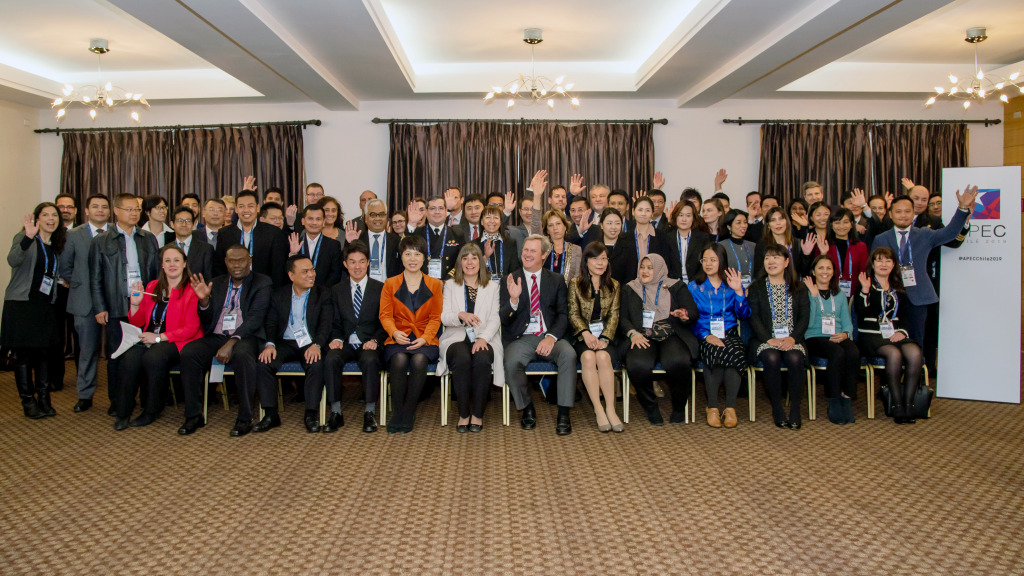Leading marine science expert of APRU’s Pacific Ocean Program on advancing UN Sustainable Development Goal (SDG) 14: Life Below Water informed policymakers on early findings of the program at the Third Senior Officials’ Meeting (SOM3) in Puerto Varas, Chile, in August.
APRU’s Inaugural Pacific Ocean Cluster Project: Advancing SDG 14 for the sustainable future of the Pacific Ocean focuses on enhancing sustainable development of coastal states, communities, and economies around the Pacific-Rim region. The overall aim is to provide policy pathways to advance SDG 14.
A team of experts from The University of British Columbia and University of Washington have conducted economy-specific analysis of the ways that all SDG goals contribute or detract from SDG 14 throughout the Pacific, with the initial results indicating a potential asymmetry in SDG alignment and achievements.
From this team, Gerald Singh, now an assistant professor at the Department of Geography of the Memorial University of Newfoundland indicates that these initial results means that while making progress to achieve SDG 14 there are benefits to SDGs 1 and 2 of ending poverty and hunger (though not fully achieve these goals). However, fully achieving the goals of eliminating poverty and hunger by the 2020-2030 achievement dates may prevent the achievement of SDG 14 in the Pacific.
Singh furthermore explained that the achievement of the SDG 14 in the Pacific is also being complicated by the economies not clustering according to classic development categories such as “developed”, “developing”, and “transitioning” but instead including a mix of fully developed and developed economies.
In view of these findings, it is the project team’s key objective to collaborate and explore ideas with the OFWG [APEC’s Oceans and Fisheries Working Group] more closely.

“One area for collaboration can be through data sharing across projects to support comparison and verifying project results,” he added.
Singh’s presentation to APEC OFWG and initiated and supported through the APRU Pacific Ocean Program generated great interest by some member economies as well as non-member guests.
Next steps included discussions of the possibility of future collaboration with the delegations of China; the Philippines; the Coral Triangle Initiative on Coral Reefs, Fisheries, and Food Security; the Ocean Conservation Administration Ocean Affairs Council (in Chinese Taipei); as well as The Nature Conservancy.
The SOM3 is the last senior officials’ preparatory meeting before the APEC Economic Leaders’ Meeting (AELM) in November.
Held under the theme “Connecting people, building the future,” it facilitated fruitful discussion surrounding the priority areas of digital economy, regional economic integration, connectivity, marine cooperation, and women and inclusive growth.
